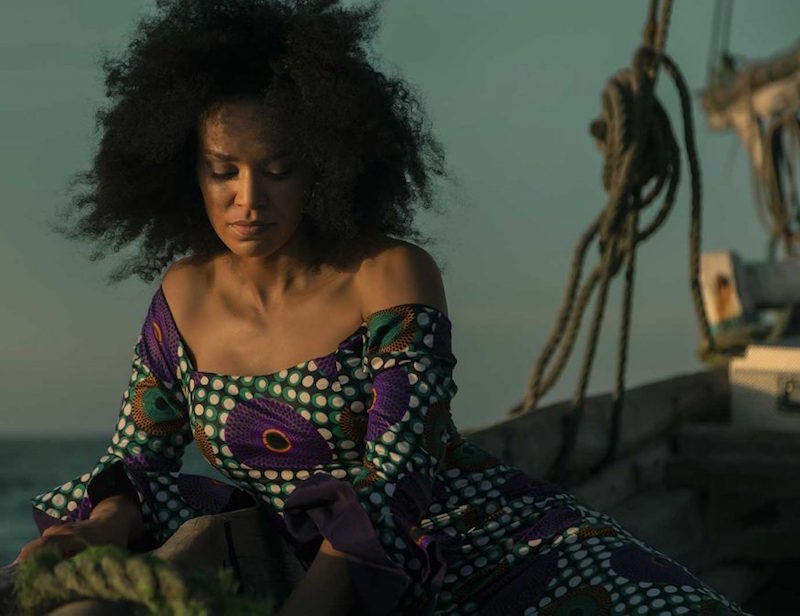South Africa’s creative talent in the entertainment industry is at an all-time high, the internet has given rise to creators of African stories and audiences are in a position to stream authentic stories that resonate with them.
Our first original production from the African continent (and of course South Africa), Queen Sono was released just before the grip of the Covid-19 pandemic took hold of the entire world and audiences took to TV and streaming platforms during lockdowns. During this time, productions came to a sudden and grinding halt as a once-thriving industry could not operate for months on end.
At the same time, Netflix was (and still is) merely at the beginning of our journey in South Africa and across the African continent, we had to pivot in terms of our planned production and release plans. We also looked at ways to continue supporting industry workers, regardless of whether or not they were working on a Netflix production, through our Covid-19 relief fund to help below-the-line workers who found themselves without an income.
Now, heading into the third year of the pandemic, we have learned how to build our content offering to our viewers while at the same time offering more affordable and innovative ways for them to access our service. This has been done through a mobile-plan offering, optimising our downloads for offline viewing, and continuously innovating our adaptive streaming technology to bring our viewers the best possible sound and picture quality while using the least amount of data, compared with other services. Most importantly, Netflix continues to invest heavily in the local creative community through upskilling, growing and nurturing the next generation of creatives who deserve to see their lives and stories reflected on screen.
With a 10% increase in internet penetration from 2015 to 2021, new talent has the opportunity to emerge. Committing to and investing in creative talent, while partnering with African content creators to bring local stories from the continent to viewers all over the world, represent the logical next step.
We’ve initiated numerous interventions to grow the sector. Other than the race for eyeballs on new content, there is a larger understanding by experienced creatives and investors that speaks to providing mutual opportunities that drive shared value for the industry and audiences.
Being part of the local creative community in South Africa and Africa comes with responsibilities, in particular the need to develop the talent pipeline that gives new voices the opportunity to be heard. A core belief at Netflix is that great stories can come from anywhere and be loved everywhere. This can already be seen through the creation of content collections available to subscribers across the continent and around the world, such as the Made in Africa, Made in South Africa and Naija on Netflix collections, which make it easier for viewers to find their next favourite African film or TV series.
Unearthing tomorrow’s talent
Substantial investments have already been made in the African content space through Netflix Originals as well as the licensing of African content. Each of our productions goes a long way to supporting the economy and the local film industry. The opportunities are far-reaching, impacting the lives of the entire value chain from directors and actors to stylists, make-up artists and even catering companies, thus creating a multiplier effect in the economy. Across the board, interest in South African and African stories increased among local and international audiences, which has made investors sit up and take notice.
Our work in developing the local talent pipeline has led to the creation of the Netflix Black Creatives Empowerment Fund and the Netflix Creative Equity Scholarship Fund. These will invest in a combination of external organisations with a strong track record of setting up under-represented communities for success in the TV and film industries, as well as bespoke Netflix programs that will help us identify, train and provide job placement for up-and-coming talent globally. The creation of these funds also benefits students from other parts of the continent, particularly East Africa as well as West and Central Africa.
Another initiative aimed at supporting creativity and sharing authentic African culture with the world is a competition in partnership with UNESCO called African Folklore Reimagined. Africa has a rich storytelling history, with folklore tales passing traditions and values down from generation to generation. This competition invites people to reimagine their heritage and apply it to our contemporary societies. We want to find emerging filmmaking talent to bring these stories to life, on screen. Africans deserve to see themselves and their stories represented. This is an opportunity for six winners to have their short films developed and launched on the service in 2022.
Funding up-and-coming talent is not new for us. A similar partnership with the National Film and Video Foundation shortlisted projects and candidates for a joint film fund of R28-million. The fund provides 100% of funding for six micro-budget films, with four budgeted at R4-million and two budgeted at R6-million. We are very excited about the next step in the process after the announcement of the six films across multiple genres that will be produced.
Along with these exciting projects, we are also proud about the successful conclusion of our Episodic Writer’s Lab in partnership with the Realness Institute.
A long-term commitment
Bringing best-in-class local and international stories to our audiences globally, investing in upskilling, and driving innovation, affordability, ease of access and payments in South Africa and across the continent are just some of the key focus points for us at Netflix. We are also big on business development opportunities and partnerships with multiple industries including mobile operators, pay TV providers, internet service providers, device manufacturers, payment providers and even government agencies.
In South Africa, Netflix partnered with South African Tourism to release the results of a cultural affinity study on how South African content on Netflix is perceived around the world. Netflix believes in the quality and global appeal of South African productions, and we contribute to the local economy not only by investing in local productions (original and licensed content), but also by bringing these unique and diverse stories to the world, increasing interest in travelling to and exploring the country.
These investments demonstrate the long-term commitment Netflix has in South Africa and across the African continent to discovering new talent and helping to propel artists forward by providing access to training, mentoring and visibility on a global scale. It also complements our growing slate of local productions, both in terms of series and films and documentaries from Africa.
We know that for the South African creative industry to reach its full potential, historically under- and misrepresented groups need to access funds, training and developmental support to unlock their potential and support the country’s efforts in reducing unemployment and poverty.
Streaming services and the internet have created a massive opportunity for creatives and content creators to tell their stories to new audiences, not only in their home country, but globally too. Those with the resources to invest in growing and nurturing the creative pipeline will reap the benefits while developing an industry for the next generation to explore their creative passions.

Ben Amadasun is the director of licensing for Africa at Netflix. He nurtures key partnerships and drives the licensing strategy across Africa. His portfolio includes sourcing local programming that is relevant for the region and acquiring global rights to shows and movies from Africa.
The Covid-19 pandemic laid waste to ‘normal’ business practices and models. But it also rapidly stimulated innovation and technological transformation. Now, as we head into a third year of working and living alongside the pandemic, the media sector is expected to continue upending traditional business models in tandem with ongoing shifts in consumer behaviour. In this edition of our popular annual, The Media Yearbook, we explore how media companies are innovating, managing and up-skilling talent, investing in advertising and marketing technology, researching and simply getting on with the business of media. Please click on the cover to read the magazine.















